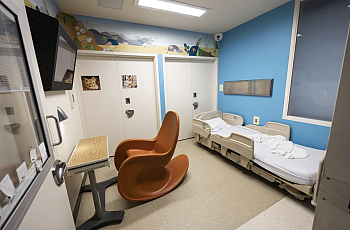
Hannah Furfaro
Mental Health Reporter

Mental Health Reporter
Hannah Furfaro was a 2022-2023 Center for Health Journalism Data Fellow and a mental health reporter at The Seattle Times. She spent the first half of her career covering education; for the past several years, she has covered science and health. She was a 2022-23 Carter Center for Mental Health Journalism fellow. Her stories have appeared in The Atlantic, Science, Scientific American, and The Wall Street Journal, among other publications. Furfaro’s work has been recognized as a finalist and winner of several national and regional awards. In 2021, her investigation of a common antipsychotic called Abilify was a finalist for the National Institute of Health Care Management award. In 2019, her piece about a cluster of people with a rare genetic condition in Colombia was recognized as a finalist for a Deadline Club award and was included in The Best American Science and Nature Writing. She has a master’s degree in science and health journalism from Columbia University and an undergraduate degree from the University of Wisconsin-Madison. She is a committee member of the Association of Health Care Journalists and a member of the Northwest Science Writers Association.

Washington lawmakers have passed legislation holding the governor’s office accountable for a growing crisis of children warehoused in hospitals awaiting psychiatric care.

The Lake Burien campus will reopen as a 24-hour care facility for youths with neurodevelopmental conditions, focusing on voluntary, specialized care to bridge gaps in Washington’s support system.

I’ve spent my career writing about youth. But Jack and his family graciously let me into their lives in a way that few have before.

Top government officials are pitching budget increases and a series of potentially transformative policy proposals to curb long psychiatric-related hospitalizations.

Jack Hays has stayed in the hospital for more than a year – including more than 250 days in a windowless room in the emergency department – as he waits for long-term care.

The state is facing a hospital boarding crisis, compounded by vast mental health care deserts.